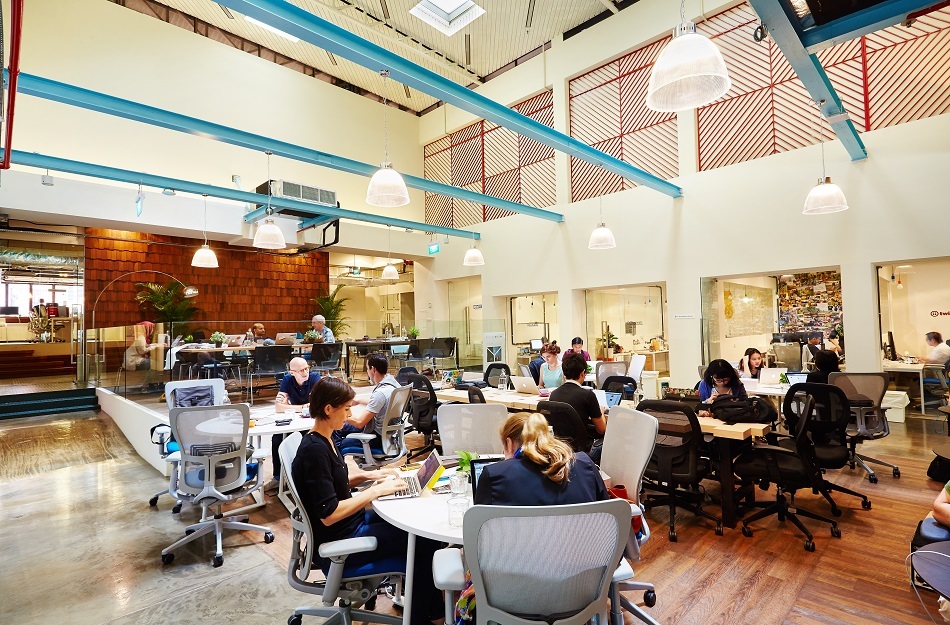This is extracted from our Market Expansion ebook, which gives tips on expanding into many Asian countries. Scroll to the bottom to download it.

Photo credit: David Russo.
Thinking of setting up your company in Singapore or expanding there? Good call! This little corner at the southernmost point of continental Asia is, after all, ranked second in the world in ease of doing business, according to the World Bank’s annual report.
Company founders in Singapore need to register with the Accounting & Corporate Regulatory Authority (ACRA), which oversees business entities in the country. ACRA offers detailed guides on setting up a company. Local agents such as law and accounting firms can help with the process and act as your representative here.
Why is Singapore a good idea?
Some of Singapore’s perks for entrepreneurs: a favorable tax environment (corporate tax is 17 percent, very low compared to Singapore’s close neighbors), English as the official language, a stable political system, and a strategic location that allows easier access to other markets in Southeast Asia and broader Asia-Pacific.
Singapore is already a major trade hub connecting Asia to the rest of the world. A lot of multinational companies have chosen to base their Asian headquarters in the city-state. Venture capital and private equity funding increased since last year to reach a five-year peak, according to valuation and corporate finance advisor Duff & Phelps. And there is no shortage of venture capital funds to back promising companies.
Singapore’s small size allows for a tighter ecosystem where several co-working spaces and startup communities offer meetups, networking, exchange of ideas, and support to budding entrepreneurs.

The Hub is a staple among co-working spaces and startup communities in Singapore. Photo credit: The Hub.
What’s the catch?
The flipside of Singapore’s cosmopolitan status is an exorbitant cost of living, particularly for foreigners living and working in the country. Singapore was the fourth most expensive city in the world to live in for 2016, according to human resources consultancy Mercer. This results in higher labor costs for employers.
Finding the right people is also challenging. High-caliber technical talent is scarce in Singapore, as people are drawn to more prestigious destinations like Silicon Valley. The government has been trying to address the problem with an increased focus on training and education but that’s a long-term plan.
Hiring restrictions on foreign talent aren’t making things any easier either.
The government’s role
Unlike other countries, Singapore’s government seems to grok startup entrepreneurship and tech innovation. The Infocomm and Media Development Authority oversees a number of initiatives to help develop the ecosystem, like providing accreditation services for promising startups and creating connections between technology businesses and corporations.
The country’s Economic Development Board is actively exploring how to better support startup entrepreneurship, while its investment arm, EDBI, has been backing young businesses in Singapore and abroad.

Singapore Minister for Communications and Information Dr. Yaacob Ibrahim tries on a VR application for clinical training at the IMDA launch event. Photo credit: IMDA.
The Government Technology Agency of Singapore, known as GovTech, was launched this year to create technology solutions and products for key government services like transportation and healthcare.
And the Monetary Authority of Singapore is embracing fintech through several initiatives like creating a regulatory sandbox for fintech startups and releasing financial data as APIs for digital services.
If you want to find out more, fill in the form below and we’ll send you our Market Expansion Ebook. It’s designed to give you basic information on each tech and startup ecosystem. It can serve as a guide on how best to get started with your company’s expansion. We share with you what you need to know about the region’s cultures, government regulations, hiring practices, business relationships, and so much more.
This post Ebook: Starting up in Singapore? Here’s what you need to know appeared first on Tech in Asia.
from Tech in Asia https://www.techinasia.com/ebook-starting-a-business-in-singapore
via IFTTT
No comments:
Post a Comment